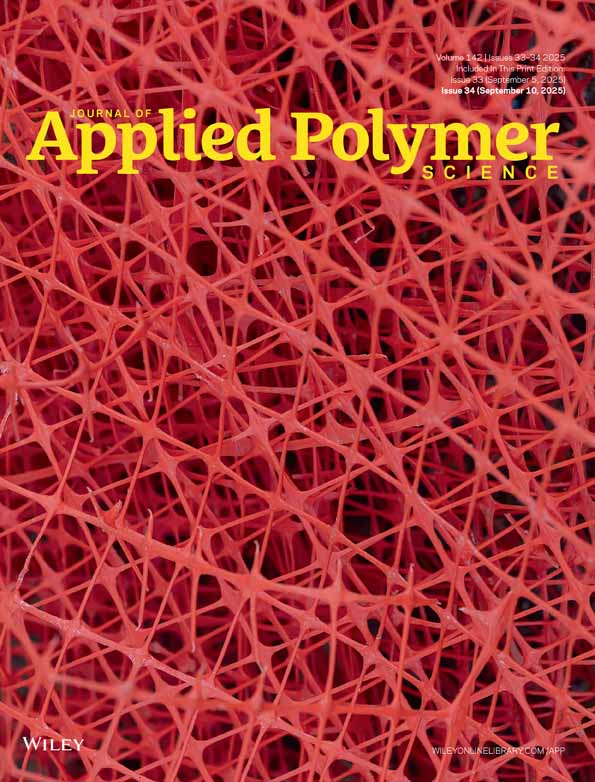Novel organic/inorganic nanocomposite of polyethylene. I. Preparation via in situ polymerization approach
Abstract
A novel methodology for the preparation of polyethylene/palygorskite, “in situ coordinated polymerization,” was proposed. A Ziegler–Natta catalyst was first supported on the surface of nanoscale crystal fibers of palygorskite and subsequently used to initiate ethylene polymerization on the surface of the fibers. The palygorskite was encapsulated by polyethylene and became reinforcement fibers of the composite. The palygorskite fibers were heat-treated to remove water, to ensure that the supported titanium species possessed proper activity for the polymerization of ethylene. The effect of the conditions of heat-treating, titanium-supporting, and other factors such as temperature and type and amount of the cocatalyst on the initiation activity of the palygorskite fibers were investigated. © 2001 John Wiley & Sons, Inc. J Appl Polym Sci 82: 1829–1837, 2001




